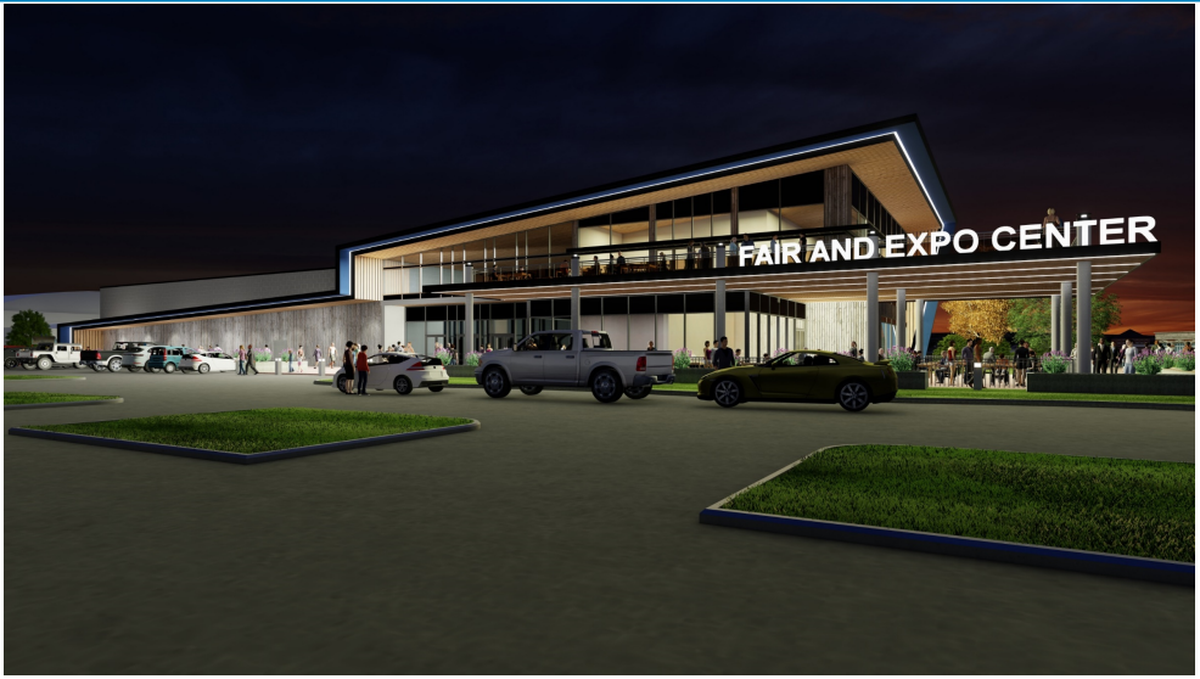$14 million building proposal for Spokane County fairgrounds in limbo due to increased costs, Avista Stadium uncertainty

Here’s the pitch: Spokane Valley would build a $10 to $14 million event center at the Spokane County fairgrounds to help the fairgrounds draw in more and bigger events throughout the year, such as car shows, RV shows and gun shows. In exchange the Valley would reap the economic rewards when more visitors stay in Spokane Valley hotels, dine at Valley restaurants and spend at city stores.
It’s an economic development idea Spokane Valley City Council has been weighing for years. The project tops the Valley’s tourism promotion wish list, and the city has set aside $5.25 million for it, including $3.5 million of lodging tax revenue and $750,000 from the state.
But the fairgrounds building proposal has run into multiple snags and it’s unclear when, or if, the idea will become reality.
Last month, the City Council learned that increased construction costs and inflation have driven the building price tag from $10 million to $14 million, unless the proposal is scaled back. The $4 million increase complicates efforts to fund the project, plan for it and apply for grants.
On top of that, Spokane County and the Spokane Indians baseball team are working to renovate Avista Stadium, which sits on the fairgrounds site. What happens to the Indians and the stadium will affect the proposed Fair and Expo building, and some City Council members want to hold off on the project until the situation is settled.
“I think it’s a good time to just pause right now,” City Councilman Rod Higgins said.
All of that leaves one of the city’s most ambitious economic development projects in limbo.
‘The only one that penciled out’
Spokane Valley did a tourism study six years ago.
The study analyzed projects that could bring more tourism dollars into the Valley. A few of those ideas have either become reality or will happen soon. For instance, the city’s been improving its trail system, and Balfour Park should be complete in the next few years.
The fairgrounds building idea – which came from former fair director Rich Hartzell – appealed to City Council members because unlike proposals to build new sports fields, it wouldn’t take money out of the city’s annual budget. The city would pay for its construction, then let the county own and operate it with financial assistance from the Valley’s lodging taxes.
“That’s the only one that penciled out,” Higgins said.
The underlying economics looked sound.
The building would be 32,000 square feet, providing lots of room for big events. There’d be meeting rooms and a restaurant inside where people could have a meal before watching an Indians’ game.
Estimates said the new building could bring in an extra 60,000 visitors a year. Those visitors would buy 8,300 hotel rooms and spend maybe $4 million in the community.
Councilman Ben Wick said demand for the building is strong. Large events can run out of space at the fairgrounds, he said. Plus, the new building would allow the fairgrounds to host multiple events simultaneously.
City Council members generally like the concept.
The question is how much they’re willing to pay for it.
Numbers, hoteliers and curveballs
Councilwoman Laura Padden said she thinks three key factors must be considered with the fairgrounds project.
First, the city needs to know what’s happening with the Spokane Indians as Avista Stadium is updated to comply with MLB regulations.
Second, the city needs to do a new economic analysis to see if the project still makes financial sense at $14 million instead of $10 million.
“The financially responsible thing to do is step back and reassess,” Padden said.
And third, the city needs support from the lodging industry.
Mike Basinger, the city’s economic development director, said during a Feb. 22 meeting that hoteliers aren’t supporting the project. That’s a problem, because it’d be largely for their benefit. If hotel leaders don’t want it, it might not be worth doing.
Woodard and Wick both said they want a more thorough economic impact analysis.
Once that’s done and the city has more concrete data, it should be easier to get the hoteliers on board, Woodard said.
“Probably they’ll start signing on when it makes sense to them,” he said. “Right now I don’t believe it does.”
Wick said the city shouldn’t give up on the fairgrounds building.
“We will just retool and get our facts and data more aligned and organized,” he said, “so we can show the true value of that facility.”